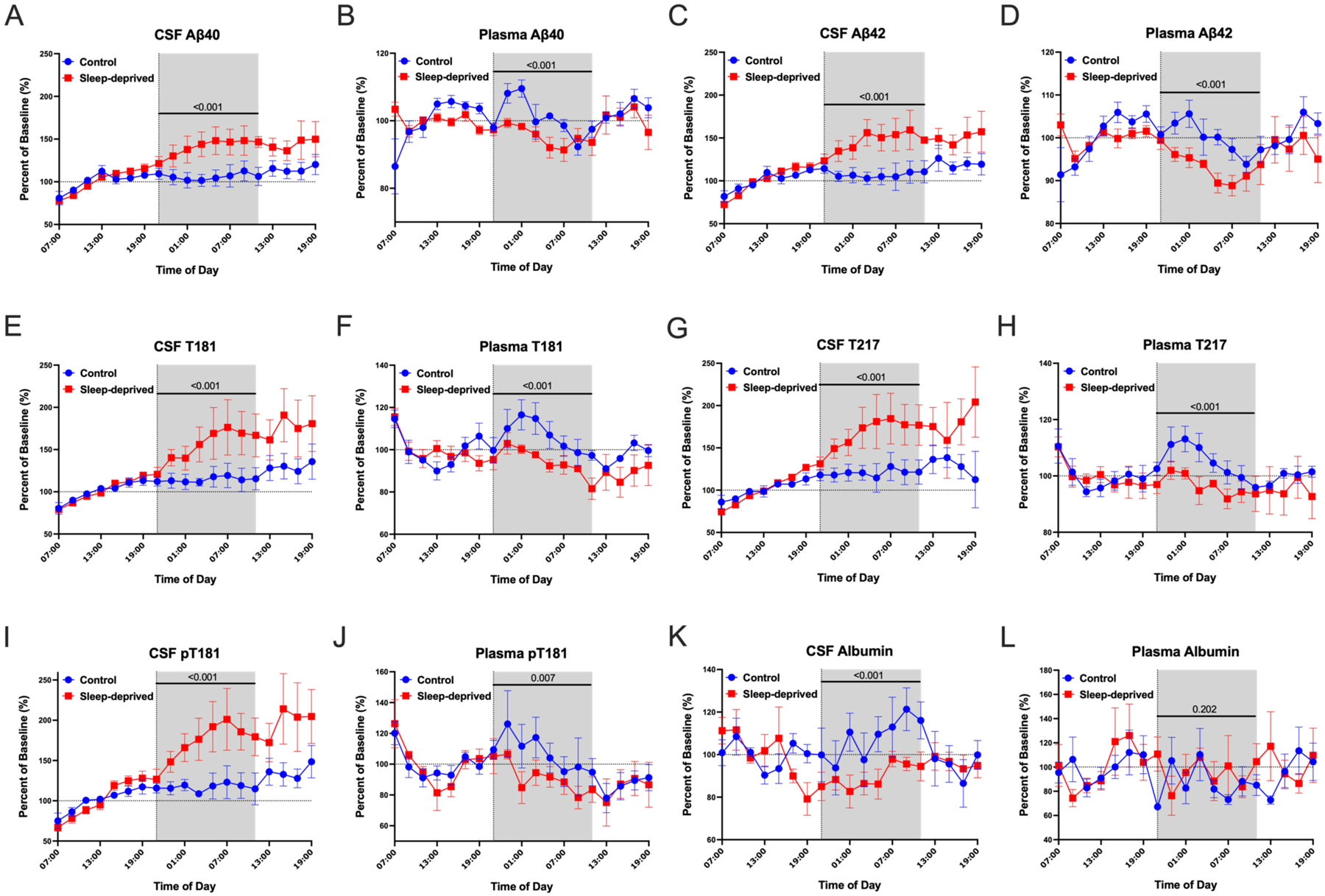Figure 1:

Sleep loss decreases plasma but increases CSF AD biomarkers. Mean overnight Aβ, tau and phosphorylated tau (p-tau) concentration normalized to a baseline of the average concentrations over hours 0–12 (07:00–19:00) in cerebrospinal fluid (CSF) and plasma. Sleep deprivation increased overnight Aβ40, Aβ42, T181, T217, and pT181 levels by 35–55% from baseline during sleep deprivation compared with controls. In plasma, sleep deprivation decreased overnight Aβ40, Aβ42, T181, T217, and pT181 by 5–15% in plasma compared to participants in the control group (A-J). The overnight albumin level in CSF decreased ~18% from baseline during sleep deprivation, but in plasma was not significantly different in the sleep-deprived group compared with the control (K, L). The overnight period during the intervention night was defined as hours 18 to 28 (21:00–11:00) to account for the transit time of CSF from the brain to the lumbar catheter (shaded area). Blue: control; Red: sleep-deprived; Error bars indicate standard error. The vertical dashed line is the intervention start time. The horizontal dashed line is at 100% of baseline. P-values are shown.
